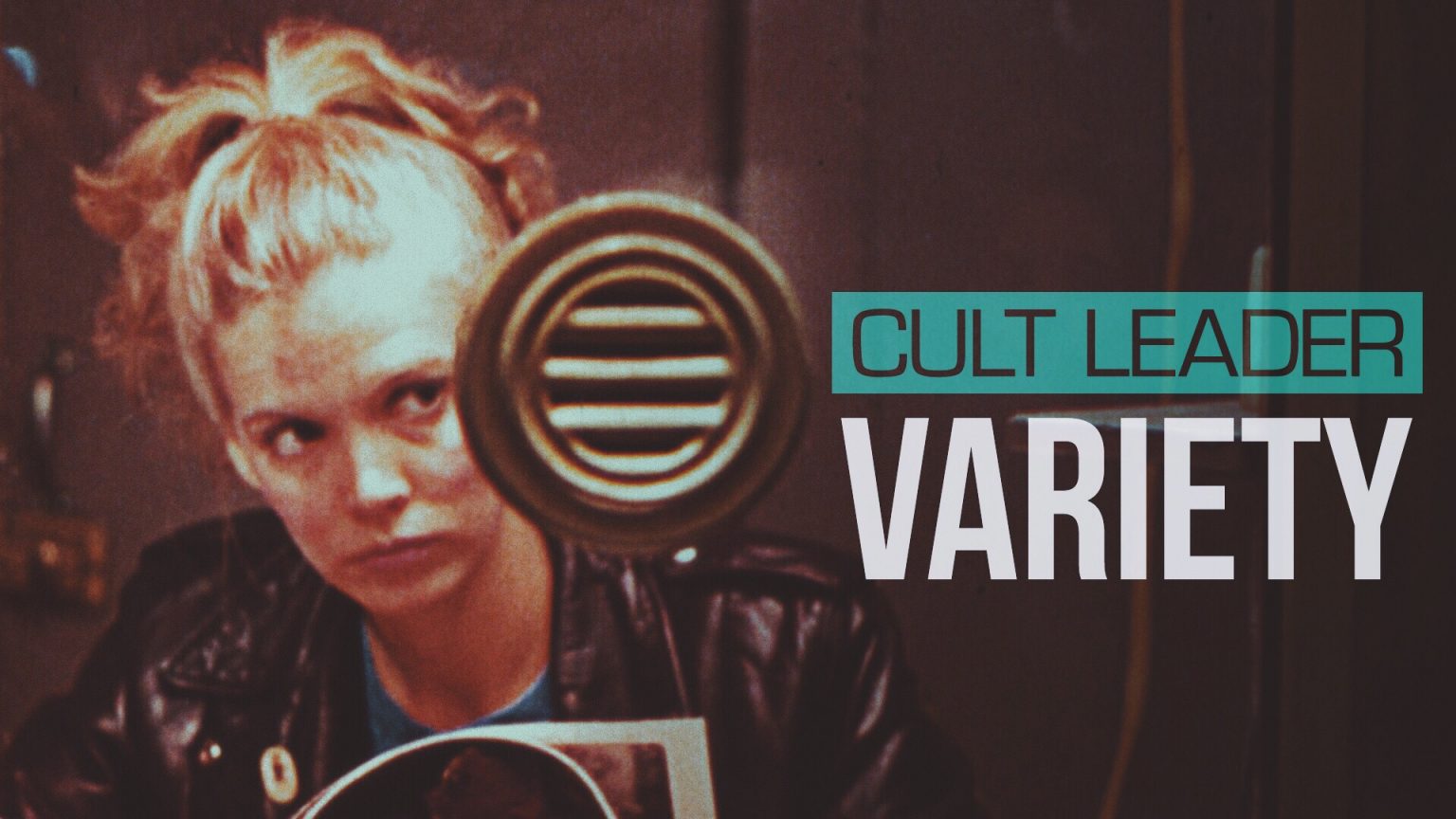Although no surefire formula exists for a film to gain cult status, occasionally a keen filmmaker organically combines classic genre tropes with the provocative contemporary subject matter and the result is cult movie gold. Film Noir is one of the most trope-laden genres in cinema. And one of those tropes is of the everyman, drawn into society’s demimonde and eventually betrayed by a venomous Femme Fatale. In 1983, director Bette Gordon chose to flip the male/female roles of Film Noir for her first feature-length film, Variety — a post-feminist mystery about female desire within the pornography trade in New York City. Despite receiving a Golden Camera award nomination at Cannes and a distribution deal, it remains relatively unseen, even though it is astonishingly prescient in the current reexamining of heteronormative sexuality, rape culture, and fetish shaming.
Christine (played by Sandy McLeod) is a struggling journalist who takes a job selling tickets (alongside a young Luis Guzman) at the box office of a porn theater called, “Variety.” As she gradually begins to explore the male-dominated world of pornography and sex shops in pre-Giuliani Times Square, she falls down a rabbit hole of her own sexual curiosity. The unsolicited monologues she delivers to her seemingly liberal boyfriend Mark (played by Will Patton) describing erotic fantasies in robust detail serve as interludes, and his discomfort embodies her sexual dissatisfaction. Christine reluctantly goes on a date to a Yankees game with Louie, a well-to-do but smarmy patron of Variety, who ditches her halfway through to deal with a business matter. Unbeknownst to him, she grabs a cab and follows him to several locations throughout the course of the night, and over the next several weeks. Upon discovering Louie’s possible mob ties, she intensifies her pursuit, placing herself in increasing danger. The jazz soundtrack by John Lurie (a regular collaborator in early Jim Jarmusch films) provides a perfect noir touchstone for Christine’s adventures following Louie around the city. The film’s denouement shows Christine slinking around her apartment in lingerie and leather under the glow of red light bulbs, in complete possession of her sexual power.
The more one discovers about the pedigree of Variety, the more one uncovers the interconnectedness of the early 1980s underground art scene. After making short art films with director James Benning in the 1970s, Bette Gordon joined The Collective for Living Cinema in the Tribeca neighborhood of New York, where she encountered many influential filmmakers—such as Ken Jacobs and members of the No Wave film movement. Renee Shafransky, the film programmer of The Collective for Living Cinema (and life partner of monologist Spalding Gray, who voices the obscene phone message in the film), became the producer on Variety when she helped Gordon secure funding from German Television, Germany’s state-funded film council. Jim Jarmusch’s Stranger Than Paradise, which shared cinematographer Tom Dicillo with Variety, was also being shot and funded by German Television around the same time. German Television not only assisted with funding but helped provide the film’s editor, Ila von Hasperg, who had worked with New German Cinema directors Werner Schroeter and Rainer Werner Fassbinder (whose bleak but lush depictions of marginalized sexuality may have also influenced Variety’s tone).
The sex-positive ideology of Variety stems from its writer Kathy Acker, a prolific punk feminist novelist/poet, who garnered no other screenplay credits. Acker’s brief stint in sex work inspired a deep fascination with female desire, voyeurism, and pornography. The bar scenes in Variety are almost verbatim reenactments of conversations Gordon and Acker had experienced in that very bar with the same-sex workers and artists who appear in the film, with Nan Goldin and Cookie Mueller playing themselves. Gordon brought the cinematic language to Acker’s subject matter: woman-as-voyeur and man-as-object (although, it would have been ideal if Acker’s queer sensibilities had also made it into the film). Both women conjectured that pornography was similar in its raison d’etre to the way that Hollywood musicals exist for their dance numbers, and it deserved its own opportunity for artistic consideration. Their theories reach critical mass in a scene where Christine is viewing a porn film at Variety and she begins to fantasize about what might happen if Louis caught her spying on him, and these imagined scenes are projected on the movie screen in front of her. Her fantasy is superseding the traditional sexual narrative.
Christine is arguably the first female character in cinema who fully demonstrates the intricate labyrinth that is female sexual fantasy. She transcends any residual pleasure from her awareness of the Male Gaze and finds the most allure in turning the tables on objectification. The classic spy attire of a black beret and trench coat that she wears while following Louie is as playful here as in a Jacques Rivette film. It’s not about Louie, it’s about how she feels when she follows him. Much like a heroine in an Olivier Assayas thriller or the character Dory Sief from the series Search Party, Christine is having fun creating her own mystery and playing a part in it, whether it’s prudent or not. In the last spoken lines of the film, Christine confesses to Louie over the phone and admits even she is not sure why she’s been following him, and they plan to meet at a designated street corner. The audience is not shown the possibly lusty (or possibly deadly) meet-up and is only left with a final shot of a dark street lit by a single street lamp. If desire is best enjoyed in a haze of mystery, Bette Gordon has cleverly left the audience in the dark, ravenous for satisfaction.
Watch Variety on Fandor.
Check out our other entries into the Cult Leader series on Torque, Chameleon Street, Girlfriends, and Welcome II the Terrordome.




